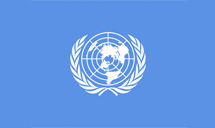Overview
Sher Mohammad Abbas Stanekzai Padshah Khan is a U.N.-sanctioned“Consolidated United Nations Security Council Sanctions List,” U.N. Security Council, June 21, 2017, https://scsanctions.un.org/consolidated/. former deputy minister of the first Taliban regime.“Consolidated United Nations Security Council Sanctions List,” U.N. Security Council, June 21, 2017, https://scsanctions.un.org/consolidated/. From August 2015 until September 2020, he headed the Taliban’s political office in Qatar.Tahir Khan, “Sher Abbas Stanekzai replaces Tayyeb Agha as Taliban’s chief negotiator,” Express Tribune (Karachi), August 5, 2015, https://tribune.com.pk/story/932536/sher-abbas-stanekzai-replaces-tayyeb-agha-as-talibans-chief-negotiator/; Saheli Roy Choudhury, “India holds first formal talks with the Taliban in Qatar,” CNBC, September 1, 2021, https://www.cnbc.com/2021/09/01/india-holds-first-formal-talks-with-the-taliban-in-doha-qatar.html. Following the Taliban’s takeover of Afghanistan on August 15, 2021, Stanekzai was named deputy foreign minister of the Taliban government on September 7.Douglas Schorzman, “Who Are the Taliban’s New Government Leaders? Here’s What We Know,” New York Times, September 7, 2021, https://www.nytimes.com/article/taliban-leaders-afghanistan.html?action=click&module=RelatedLinks&pgtype=Article.
After the Taliban seized control of Afghanistan in 1996,Lawrence Wright, The Looming Tower (New York: Vintage Books, 2006), 259; Patrick Healy, “Kandahar residents feel betrayed,” SF Gate, December 19, 2001, http://www.sfgate.com/news/article/Kandahar-residents-feel-betrayed-2837764.php;
“The Taliban,” Council on Foreign Relations, accessed April 13, 2015, http://www.cfr.org/terrorist-organizations-and-networks/taliban/p35985?cid=marketing_use-taliban_infoguide-012115#!/. Stanekzai became deputy minister of Foreign Affairs in the new Taliban government. That October, he led a press conference during which he dismissed international criticism after the Taliban government shut down girls’ schools and required working women to remain home. Regarding U.S. requests for the Taliban to extradite wanted terrorists in Afghanistan, Stanekzai told reporters that the Taliban would “punish” those who are “making trouble.”John F. Burns, “Afghanistan’s New Rulers Soft-Pedal Their Hard Line,” New York Times, October 2, 1996, http://www.nytimes.com/1996/10/02/world/afghanistan-s-new-rulers-soft-pedal-their-hard-line.html. Also that year, Stanekzai met with members of the Clinton administration in Washington, D.C., for unsuccessful talks on U.S. recognition of the Taliban government.John F. Burns, “Islamic Rule Weighs Heavy for Afghans,” New York Times, September 24, 1997, http://www.nytimes.com/1997/09/24/world/islamic-rule-weighs-heavily-for-afghans.html. Stanekzai would later serve as the Taliban’s deputy minister of Public Health.“Consolidated United Nations Security Council Sanctions List,” U.N. Security Council, June 21, 2017, https://scsanctions.un.org/consolidated/. In that role in October 2001, Stanekzai accused the United States of using chemical weapons against the Taliban during its invasion of Afghanistan.Reuters, “Taliban Again Claim U.S. Using Chemical Weapons,” Rense.com, October 29, 2001, http://www.rense.com/general15/talivanagainclaim.htm. By the end of 2001, the Taliban had lost control of Afghanistan to the U.S.-led international coalition.“Operation Enduring Freedom Fast Facts,” CNN, last modified December 21, 2014, http://www.cnn.com/2013/10/28/world/operation-enduring-freedom-fast-facts/.
Stanekzai arrived in Qatar in January 2012 when the Taliban began setting up its political office in Doha in order to facilitate negotiations with the Afghan government.Ben Farmer, “Taliban diplomats arrive in Qatar,” Telegraph (London), January 26, 2012, http://www.telegraph.co.uk/news/worldnews/asia/afghanistan/9041544/Taliban-diplomats-arrive-in-Qatar.html;
Quentin Sommerville and Bilal Sarwary, “Afghan President Hamid Karzai ‘plans talks with Taliban,’” BBC News, January 29, 2012, http://www.bbc.co.uk/news/mobile/world-asia-16779547. Though Stanekzai and others were under international travel bans because of their U.N. designations, arrangements were reportedly made to allow them to travel to Qatar.Rod Nordland and Alissa J. Rubin, “Taliban’s Divided Tactics Raise Doubts Over Talks,” New York Times, June 25, 2013, http://www.nytimes.com/2013/06/26/world/asia/mixed-signals-as-taliban-try-another-tactic.html. In August 2015, Stanekzai became the acting chief of the Taliban’s political office in Doha. He took over the position from Sayed Tayyeb Agha a day after Afgha resigned. Upon assuming the position, Stanekzai pledged allegiance to the Taliban’s new leader, Mullah Akhtar Mansoor.Tahir Khan, “Sher Abbas Stanekzai replaces Tayyeb Agha as Taliban’s chief negotiator,” Express Tribune (Karachi), August 5, 2015, https://tribune.com.pk/story/932536/sher-abbas-stanekzai-replaces-tayyeb-agha-as-talibans-chief-negotiator/. Mansoor later died in a May 2016 airstrike.James MacKenzie and Matt Spetalnick, “Afghan Taliban meet on succession as Obama confirms leader’s death,” Reuters, May 23, 2016, http://www.reuters.com/article/us-usa-afghanistan-taliban-idUSKCN0YC0P6.
Stanekzai was permanently appointed to the position in November 2015. According to Taliban spokesman Zabihullah Mujahid, Stanekzai has represented the Taliban in “a number of rounds of peace talks with the U.S. and Afghan government.”“Taliban appoint top official to Qatar political office,” Reuters, November 24, 2015, http://www.reuters.com/article/us-afghanistan-taliban-idUSKBN0TD1QL20151124. Stanekzai pledged allegiance to new Taliban leader Mullah Mawlawi Haibatullah Akhundzada in May 2016.“Head of Taliban’s Qatar office pledges allegiance to new chief,” Daily Times, May 26, 2016, http://dailytimes.com.pk/islamabad/27-May-16/head-of-talibans-qatar-office-pledges-allegiance-to-new-chief#.
Despite Stanekzai’s U.N. designation, he has traveled around the world representing the Taliban. In July 2016, he met with Chinese government officials in Beijing to discuss the security situation in Afghanistan. A Taliban spokesman told Reuters that the Taliban are on “good terms with different countries of the world and China is one among them.”Jibran Ahmad, Ben Blanchard, and James Mackenzie, “Afghan Taliban delegation visits China to discuss unrest: sources,” Reuters, July 30, 2016, http://www.reuters.com/article/us-afghanistan-taliban-china-idUSKCN10A09H. In January 2017, a suicide bombing in Kandahar, Afghanistan, wounded Juma Mohammed Abdullah al-Kaabi, the ambassador of the United Arab Emirates in Afghanistan. Kaabi died from his wounds the following month. The Taliban assigned Stanekzai to attend Kaabi’s funeral, but the UAE barred him from entering the country.Samim Faramarz, “Taliban Envoys Barred From Entering UAE,” Tolo News, February 18, 2017, http://www.tolonews.com/afghanistan/taliban-envoys-barred-entering-uae;
“Juma Mohammed Abdullah al-Kaabi dies after Afghan blast,” Al Jazeera, February 15, 2017, http://www.aljazeera.com/news/2017/02/uae-ambassador-wounded-kandahar-blast-dies-wounds-170215105632041.html.
Stanekzai remained head of the Taliban’s political office in Qatar until early September 2020.Saheli Roy Choudhury, “India holds first formal talks with the Taliban in Qatar,” CNBC, September 1, 2021, https://www.cnbc.com/2021/09/01/india-holds-first-formal-talks-with-the-taliban-in-doha-qatar.html.
On August 6, 2021, the Taliban began an offensive against major Afghan cities with the seizure of Zaranj, capital of Nimruz province.Susannah George and Ezzatullah Mehrdad, “Taliban fighters overrun an Afghan provincial capital for the first time since withdrawal of foreign forces,” Washington Post, August 6, 2021, https://www.washingtonpost.com/world/2021/08/06/afghanistan-taliban-nimruz/. By August 16, the Taliban laid siege to the presidential palace and took complete control of Kabul, after which the Taliban declared the war in Afghanistan had ended.“Taliban declares ‘war is over’ as president and diplomats flee Kabul,” Reuters, August 15, 2021, https://www.reuters.com/world/asia-pacific/talibans-rapid-advance-across-afghanistan-2021-08-10/. The Taliban has claimed that it would take on a more “moderate” approach in their ruling of the country, and that women are allowed to have roles in public life in observance of “Islamic law.”“Factbox: Taliban seek to present a moderate face as they take control in Afghanistan,” Reuters, August 15, 2021, https://www.reuters.com/world/asia-pacific/taliban-seek-present-moderate-face-they-take-control-afghanistan-2021-08-15/. On September 7, 2021, the Taliban announced the official appointments within their caretaker government. Stanekzai was named deputy foreign minister. The government is exclusively male, with many positions filled with veterans from their hardline movement in the early nineties.Matthieu Aikins and Jim Huylebroek, “Taliban Appoint Stalwarts to Top Government Posts,” New York Times, September 7, 2021, https://www.nytimes.com/2021/09/07/world/asia/taliban-women-protest-kabul-afghanistan.html; Kathy Gannon, “Taliban form all-male Afghan government of old guard members,” Associated Press, September 8, 2021, https://apnews.com/article/middle-east-pakistan-afghanistan-arrests-islamabad-d50b1b490d27d32eb20cc11b77c12c87.
Associated Groups
- Extremist entity
- Taliban
- Read Threat Report
- Type(s) of Organization:
- Insurgent, regional, terrorist, transnational, violent
- Ideologies and Affiliations:
- Deobandi, Islamist, jihadist, Pashtun, Salafi, Sunni, Wahhabi
- Position(s):
- Deputy foreign minister of the Taliban government
The Taliban seized power in Afghanistan in August 2021 after previously leading a violent insurgency in Afghanistan and Pakistan. The group is closely affiliated with al-Qaeda.
History
United Nations

The U.N. Security Council designated Sher Mohammed Abbas Stanekzai Padshah Khan as an individual associated with the Taliban on January 25, 2001.“Consolidated United Nations Security Council Sanctions List,” U.N. Security Council, June 21, 2017, https://scsanctions.un.org/consolidated/.
